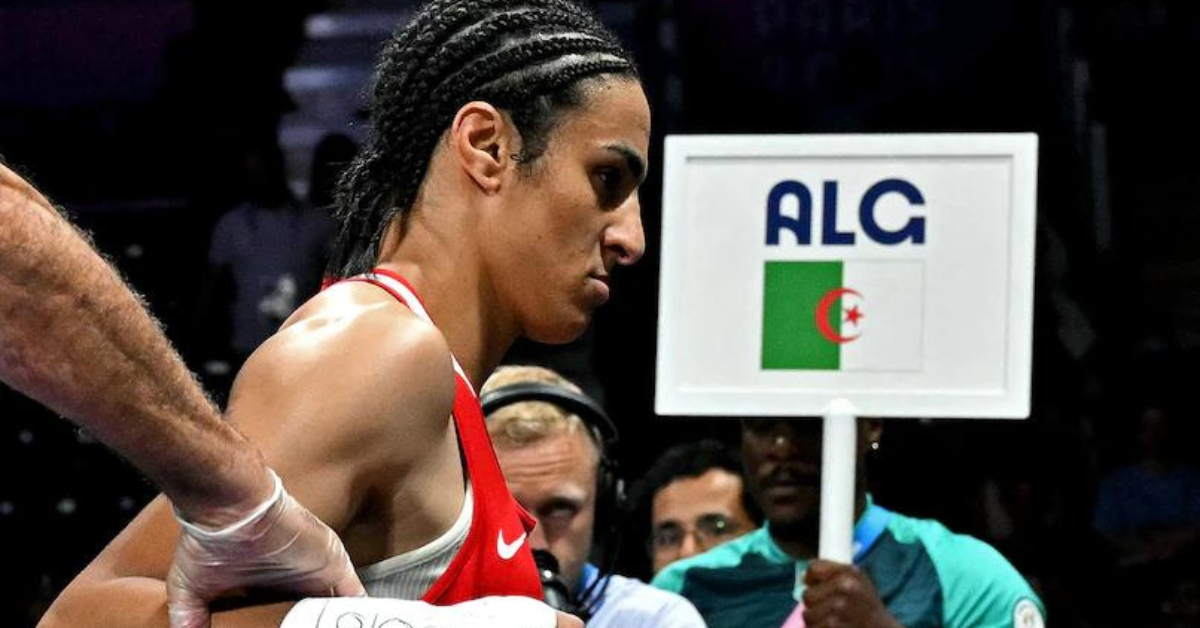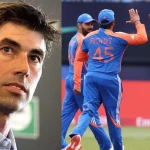The Paris Olympics 2024 have been a hotbed of athletic excellence and unprecedented drama. Among the most talked-about controversies is the participation of Algerian boxer Imane Khelif in the women’s 66kg event. Questions have arisen about Khelif’s eligibility due to her possessing male chromosomes. This has sparked intense debates and polarized opinions across the sporting world.
Imane Khelif vs. Angela Carini: The Match Abandoned
The controversy reached a boiling point when Khelif faced Italian boxer Angela Carini. The match took an unexpected turn when Carini decided to abandon the bout after just 46 seconds, citing concerns for her safety and well-being. Carini’s dramatic exit has further fueled the ongoing debate about Khelif’s eligibility to compete in the women’s category.
The Background: Khelif’s Journey and Achievements
Early Life and Career
Imane Khelif, a 25-year-old from Tiaret, Algeria, has made significant strides in the world of boxing. Despite initial resistance from her father, who disapproved of boxing for girls, Khelif pursued her passion with determination. She has been a beacon of inspiration, aiming to win a gold medal on the world stage.
Professional Debut and Early Competitions
Khelif made her professional debut at the 2018 World Championships, finishing 17th. The following year, she secured the 19th position. Her breakthrough came at the Tokyo Olympics in 2021, where she reached the quarter-finals but was knocked out by Ireland’s Kellie Harrington. Khelif’s impressive track record includes a silver medal at the Women’s World Boxing Championships and gold medals at the 2022 African Championships, Mediterranean Games, and 2023 Arab Games.
The 2023 World Boxing Championships Controversy
Initial Disqualification
Khelif’s eligibility was first questioned at the 2023 World Boxing Championships in New Delhi. IBA President Umar Kremlev announced Khelif’s disqualification based on DNA tests that revealed she has XY chromosomes. Kremlev stated that athletes with male chromosomes posing as women were excluded from the competition to maintain fairness.
Reactions and Responses
The Algerian Olympic Committee attributed Khelif’s disqualification to “medical reasons,” while Algerian media reported that high testosterone levels were the cause. Khelif expressed her discontent, alleging a conspiracy to prevent her from winning a gold medal. She vowed not to remain silent about the issue, highlighting the broader implications of such controversies on athletes’ careers and lives.
IOC’s Stance: Passport and Gender Eligibility
The International Olympic Committee (IOC) has defended Khelif’s participation in the Paris Olympics. IOC spokesperson Mark Adams clarified that Khelif’s passport identifies her as female, and thus, she is eligible to compete in the women’s category. Adams emphasized that all competitors in the women’s category comply with competition eligibility rules.
Criticism and Support
Khelif’s participation has drawn criticism from notable figures in the boxing community, including champions Claressa Shields and Ebanie Bridges. They argue that the IOC’s decision undermines the integrity of women’s sports. Conversely, the Algerian Olympic Committee (COA) has supported Khelif, condemning the reports against her as unfounded.
A Broader Perspective: Gender and Sports
Challenges of Gender Eligibility
Khelif’s case underscores the complex issue of gender eligibility in sports. It raises questions about how to balance inclusivity with fairness. The presence of athletes with male chromosomes in women’s competitions has sparked debates about the advantages such athletes may have over their competitors.
Impact on Athletes
Athletes like Khelif find themselves at the center of these controversies, facing scrutiny and pressure. The discourse around gender eligibility can affect their mental health, performance, and public perception. It also highlights the need for clear, consistent policies that ensure fairness while respecting athletes’ identities.
Moving Forward: Policy and Inclusivity
Developing Fair Policies
The sports community must develop policies that address the nuances of gender eligibility. This involves scientific, ethical, and social considerations. Fairness in competition must be balanced with respect for athletes’ rights and identities.
Inclusivity in Sports
Inclusivity is a cornerstone of the Olympic spirit. Ensuring that all athletes have the opportunity to compete without discrimination is essential. The ongoing debates should lead to policies that reflect the values of inclusivity, respect, and fairness.
The Future of Gender Eligibility in Sports
The controversy surrounding Imane Khelif at the Paris Olympics 2024 has brought to light critical issues in the realm of sports. As the debates continue, it is crucial to find a balance that upholds the integrity of women’s sports while embracing the diversity of athletes’ identities. The future of gender eligibility in sports will depend on thoughtful, inclusive policies that prioritize fairness and respect for all competitors. As we look forward, the hope is that these discussions will pave the way for a more inclusive and equitable sporting world.
Please check for information on the best betting sites in India – https://selectory.org/best-betting-sites/















